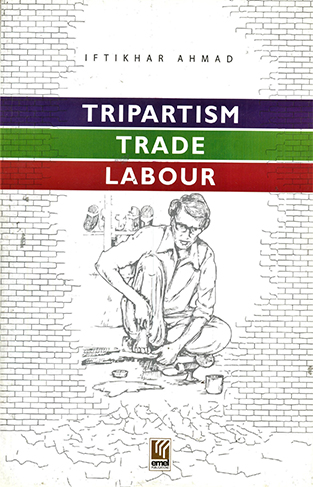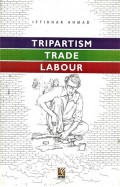Tripartism Trade Labour
By: Iftikhar Ahmed
-
Rs 276.25
- Rs 425.00
- 35%
You save Rs 148.75.
Due to constant currency fluctuation, prices are subject to change with or without notice.
Iftikhar's work combines labour history with details of deregulation and privatization in the recent decades and provides a riveting account of (lack of) tripartism not only in Pakistan but also in India. While the public sector unions were able to sign an accord with the state to protect their rights in the wake of privatization of state owned enter- prises, no such example is available for the private sector in South Asia. There is a need to scrap enterprise level bargaining and replace it with industrial/sectoral bargaining. This can be done by going back 90 years and incorporating the progressive provisions of Trade Union Act 1926, applicable in Pakistan till 1968 (though in a much mutilated form through amendments in 1960 and 1961 whereby minimum membership requirements were inserted and outsiders were no longer allowed to be part of executive unless they were paid full time employees of the union). Mr. Jinnah played a pivotal role in passage of the Act in 1926 by Imperial Legislative Council of which he was a member. Moreover, he was elected as the President of All India Postal Staff Union in 1925.
Iftikhar's work combines labour history with details of deregulation and privatization in the recent decades and provides a riveting account of (lack of) tripartism not only in Pakistan but also in India. While the public sector unions were able to sign an accord with the state to protect their rights in the wake of privatization of state owned enter- prises, no such example is available for the private sector in South Asia. There is a need to scrap enterprise level bargaining and replace it with industrial/sectoral bargaining. This can be done by going back 90 years and incorporating the progressive provisions of Trade Union Act 1926, applicable in Pakistan till 1968 (though in a much mutilated form through amendments in 1960 and 1961 whereby minimum membership requirements were inserted and outsiders were no longer allowed to be part of executive unless they were paid full time employees of the union). Mr. Jinnah played a pivotal role in passage of the Act in 1926 by Imperial Legislative Council of which he was a member. Moreover, he was elected as the President of All India Postal Staff Union in 1925.
Zubin Mehta: A Musical Journey (An Authorized Biography)
By: VOID - Bakhtiar K. Dadabhoy
Rs 472.50 Rs 1,050.00 Ex Tax :Rs 472.50
The Origins of Political Order From Prehuman Times to the French RevolutioN
By: Francis Fukuyama
Rs 3,505.50 Rs 3,895.00 Ex Tax :Rs 3,505.50
Manning Up: How the Rise of Women Has Turned Men into Boys
By: Kay Hymowitz
Rs 646.75 Rs 995.00 Ex Tax :Rs 646.75
The Obama Syndrome: Surrender At Home War Abroad
By: Tariq Ali
Rs 1,165.50 Rs 1,295.00 Ex Tax :Rs 1,165.50
The Quest For Meaning: Developing A Philosophy Of Pluralism
By: Tariq Ramadan
Rs 1,255.50 Rs 1,395.00 Ex Tax :Rs 1,255.50
The Pakistan US Conundrum Jihadists The Military And The People The Struggle For Control
By: Yunas Samad
Rs 1,255.50 Rs 1,395.00 Ex Tax :Rs 1,255.50
An Enemy We Created: The Myth Of The Taliban Al Qaeda Merger In Afghanistan 19702010
By: Alex Strick van Linschoten
Rs 3,412.50 Rs 5,250.00 Ex Tax :Rs 3,412.50
WikiLeaks: Inside Julian Assanges War on Secrecy
By: David Leigh & Luke Harding
Rs 552.50 Rs 850.00 Ex Tax :Rs 552.50
No similar books from this author available at the moment.
No recently viewed books available at the moment.
Zubin Mehta: A Musical Journey (An Authorized Biography)
By: VOID - Bakhtiar K. Dadabhoy
Rs 472.50 Rs 1,050.00 Ex Tax :Rs 472.50














-120x187.jpg?q6)





-120x187.jpg?q6)



-120x187.jpg?q6)



